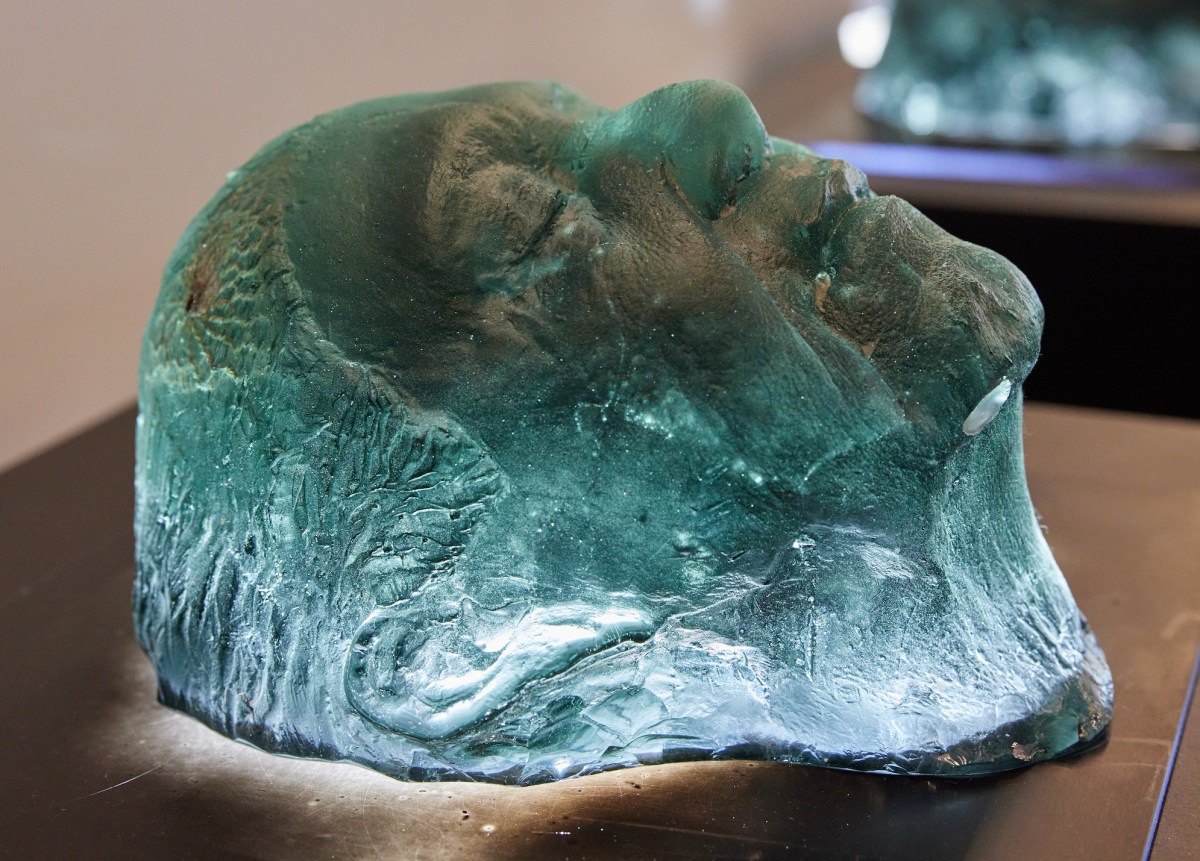Each year, Hornsby Shire Council’s Remagine Art Prize invites submissions from Australian artists on an environmental theme in order to shed light on environmental challenges while channelling the creativity of thinkers and makers.
2023 winner, Jennifer Kemarre Martiniello OAM, says the prize is a unique opportunity that pushes artistic practices and looks to a brighter future. Her sculpture, Not Wasted, was made from recycled television screens, resonating with last year’s theme, ‘Wasteland or Wonderland’.
Martiniello tells ArtsHub: ‘I think [the environmental theme] is inspiring because I know there are a lot of artists out there who are looking at recycling and upcycling. To have their practice and their interest recognised through an art prize is really important. It contributes to practices that are looking after the environment.
‘I’ve always been working with leftover glass to keep them out of landfills, so when I was given some television screens, it just seemed appropriate to look at that and see how it could be recycled.’
Martiniello says winning the prize not only contributed financially to her practice, but was also a significant stamp of approval.
‘I was very delighted on winning the prize… I was really pleased with the result of casting with recycled television screen glass, but I guess you just don’t know until somebody else also really liked it. And if you can win a prize, that means you’ve been justified in what you’ve done and you’re on the right track to be self-sufficient as an artist.’
The Remagine Art Prize is also a platform that unites like-minded peers, forming a network that doesn’t really exist elsewhere. ‘I was really curious to see what other people were doing with recycling,’ says Martiniello, ‘and they were all so innovative.
‘The way people conceptualise [a work] and how they can adapt the materials to those concepts is always exciting.’
Reasons to enter the 2024 Remagine Art Prize
In Martiniello’s view, what makes an art prize worth entering is that ‘it has to be in your line of interest’.
She continues: ‘I don’t think you can just enter a prize for the sake of entering; you have to look at what the ethos of the prize is and if it’s holding [a] place for your practice.
‘It should also give you an opportunity to stretch yourself a bit, or to push the medium a little further than you have before,’ she says.
Looking at the 2024 Remagine Art Prize theme, ‘Crossroads of Consumption,’ Martiniello hopes it will offer an interesting challenge to entrants. ‘There will be lots of different approaches and ways of conceiving that.’
She adds: ‘The really good pieces that I saw [at last year’s finalists’ exhibition] had very deeply considered concepts and people experimented for quite some time on the best way to use particular recycled materials.’
Her advice to entrants is to ensure that ‘what you enter is the best of your practice,’ and to ‘take the risk’.
‘I know there’s quite a lot of emerging artists out there who think their work isn’t good enough but it’s really worthwhile entering a prize because if you’re shortlisted and exhibited for people to see, that’s a really important thing for establishing yourself as an artist.’
Entries for the 2024 Remagine Art Prize are open from 11 January to 21 March, with winners to be announced on 10 May. The 2024 Remagine Art Prize finalists’ exhibition will be held from 10 May until 26 May 2024. Learn more and how to enter.





